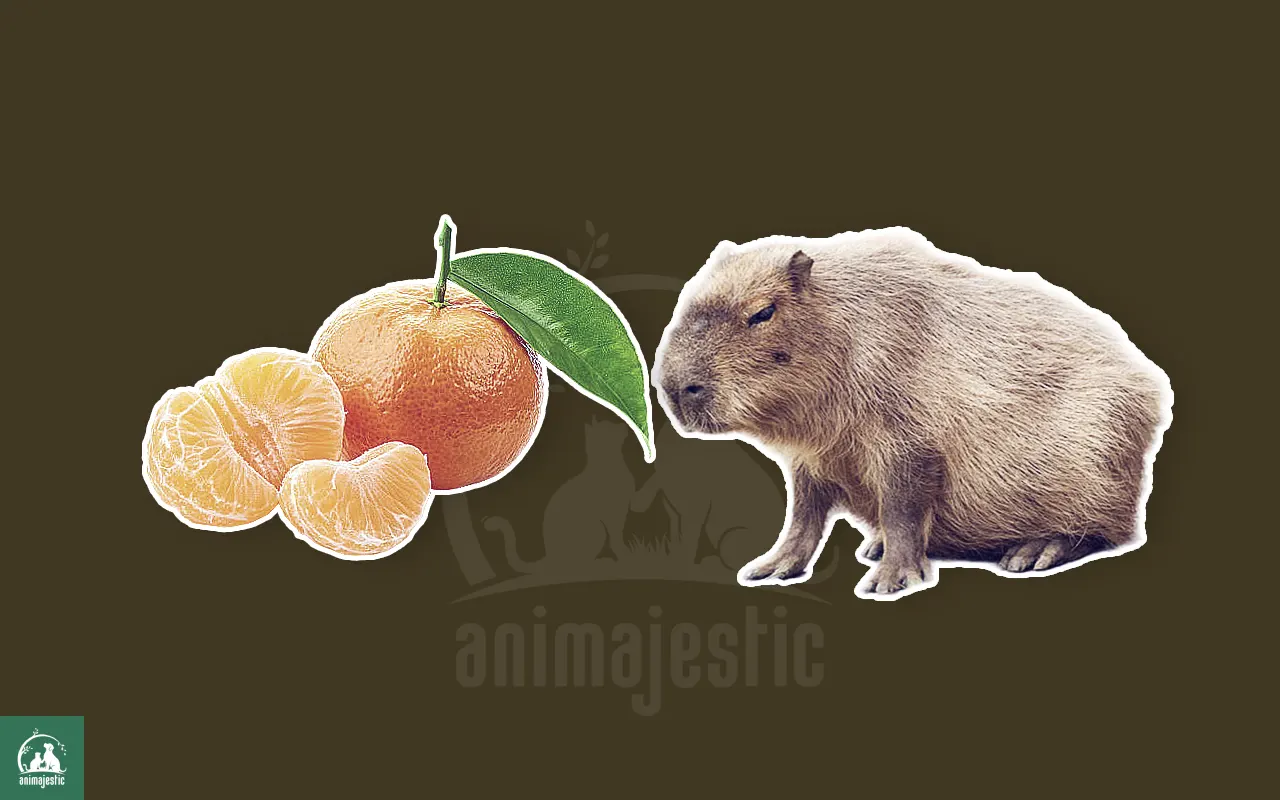Have you ever wondered what it would be like to see capybaras eat mandarins while sharing some with them? This largest rodent in the world can certainly inspire a lot of curiosity, particularly around their diet.
Mandarins, the citrus kings of the fruit world, are refreshing nutritional powerhouses for people. Still, does the same hold true for our capybara companions?
Let us embark on an epic dietary exploration, shedding light on all you need to know and equip you with the knowledge to ensure the dietary health of your capybara.
Nutritional Profile of Mandarins
Known for their zesty sweetness and vibrant color, mandarins pack a punch of nutrients that make them a cherished favorite among fruits.
Here’s a glimpse into the nutritional profile of mandarins:
- Vitamin C
- Dietary Fiber
- Antioxidants
- Minerals, including potassium and magnesium
- Vitamins such as A and B complex
- Trace quantities of iron and calcium
Given these nutrients, you may be tempted to slice up a mandarin and offer it to your capybara, but is that a wise move? Let’s find out.
Potential Benefits of Mandarins for Capybaras
To manage our expectations, it’s essential to explore the potential benefits capybaras can draw from the nutritional profile of mandarins.
Vitamins and Minerals
The presence of vitamins and minerals in mandarins may be beneficial to a capybara’s overall health. Vitamins like A and C are known for promoting healthy skin, boosting immunity, and supporting eye health, among other benefits.
Fiber
Mandarins’ fiber content could contribute to a healthy digestive system, regulating bowel movements, and preventing issues like constipation.
Antioxidants
Antioxidants, particularly essential in fighting cell damage from free radicals, could be one notable benefit capybaras can gain from mandarins.
But capybaras are herbivores, emphasizing a mostly grassy diet. So, the question remains—does this citrus fruit align with their dietary needs?
Potential Risks of Feeding Mandarins to Capybaras
While mandarins may seem like a vitamin-filled treat, several factors could make this citrus fruit a less-than-ideal choice for capybaras.
High Sugar Content
Mandarins, like most fruits, contain a considerable amount of sugar. While sugars from fruits are naturally occurring, too much can still lead to health issues including obesity and dental problems.
Citrus Sensitivity
The acidity from mandarins can potentially cause gastrointestinal discomfort in capybaras. Every capybara is unique, and while some may tolerate it, others could have a sensitive response.
Inadequate Nutritional Alignment
Capybaras are herbivores, spending most of their day grazing on grasses. As such, their bodies are designed to extract maximum nutrition from plants. However, mandarins, despite their nutritional profile, may not align entirely with their dietary needs.
Serving Mandarins to Your Capybara: Guidelines and Tips
If, after considering the above factors, you still wish to introduce mandarins to your capybara’s diet, it’s crucial to do it right.
Here are a few tips to ensure the safe consumption of mandarins:
- Moderation is Key: Given the potential risks, mandarins should never be the main part of your capybara’s diet but served occasionally as a tiny treat.
- Keep an Eye Out: Watch for any changes in your capybara’s behavior or signs of discomfort. If you notice anything unusual, stop feeding mandarins immediately.
- Preparing the Mandarin: Always remove any seeds and cut the mandarin into small, manageable sizes to prevent choking and ease digestion.
Fruit and Veggie Alternatives to Mandarins for Capybaras
While mandarins can be a treat, they aren’t a necessity in a capybara’s diet.
Here are a few alternatives that might make a better choice:
- Apples: A healthier choice when considering fruit options for your capybara. As always, apply portion control and remove the seeds and the core before serving.
- Leafy Vegetables: As herbivores, capybaras prefer greens. Choices like lettuce, spinach, or kale can be an ideal addition to their diet.
- Carrots: Carrots can be an occasional snack for capybaras, providing them with added vitamins and fiber.
So, Can Capybaras Eat Mandarins?
Navigating the dietary needs of your capybara can seem like a complicated task. Feeding them treats like mandarins may not be entirely off-limits, but it requires careful thought and consideration.
Remember, capybaras do not have the same dietary requirements as us, and this is crucial to consider when introducing new foods to their diet.
While capybaras can eat mandarins, their high sugar content and acidity don’t make them the best snack option. When it comes to these gentle giants, sticking to what nature intended—grasses and aquatic plants—will always be a safer bet.
Supplementing their diet with fruits or vegetables cautiously can provide a little variety, but mustn’t replace their regular diet in any way.
Being passionate about capybaras means understanding their unique needs and making decisions that keep their well-being at the forefront.
Whether you’re sharing your space with a capybara or simply a fan, knowing what’s good for them can enhance your connection with these charming animals and ensure they live healthy, happy lives.
